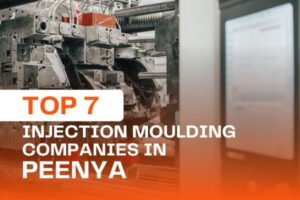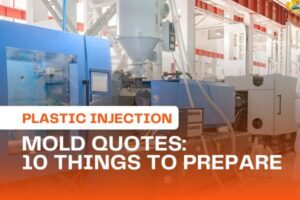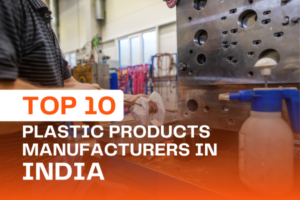Plastic Injection Molding Parts for the Medical & Pharmaceutical Industry
The medical and pharmaceutical industries rely heavily on precision and quality when it comes to producing components and devices. One manufacturing process that has proven to be indispensable in meeting these stringent requirements is plastic injection molding. This advanced technique allows for the mass production of intricate and customized parts with unparalleled accuracy.We will delve into the importance of plastic injection molding in the medical and pharmaceutical sectors, explore the advantages it offers for medical applications, discuss some of its prevalent use cases, consider the factors involved in selecting medical-grade plastics, and introduce a specialized solution provider in this field, Tru Mould.
The Importance of Plastic Injection Molding in the Medical & Pharmaceutical Industries
The medical and pharmaceutical industries are known for their high standards of safety, precision, and reliability. Injection molding plays a pivotal role in meeting these demands. It offers several critical advantages, including:
Precision and Consistency: Injection molding allows for the production of highly detailed and uniform parts, crucial for medical devices that need to fit together seamlessly and perform reliably.
Cost Efficiency: The ability to produce large quantities of parts in a short time span makes injection molding a cost-effective manufacturing process, helping to reduce overall production costs.
Material Versatility: Injection molding accommodates a wide range of materials, including medical-grade plastics, which are essential for ensuring the biocompatibility and safety of medical and pharmaceutical products.
Scalability: Whether you need a few prototypes or millions of parts, injection molding can easily adapt to your production requirements.
Advantages of Plastic Injection Molding for Medical Applications
Medical injection molding is the manufacturing process employed to create intricate and precise medical components, devices, and equipment. This method entails the injection of molten materials, frequently medical-grade plastics or silicone, into molds to form the desired shapes. Injection molding offers several key advantages for medical applications:
1. Biocompatible Materials:Medical-grade plastics, such as PEEK and PTFE, can be used to ensure that the parts do not react with the human body and are safe for implantation or contact with bodily fluids.
2.Tight Tolerances:Medical devices often require tight tolerances to function correctly. Injection molding can achieve these precise specifications consistently.
3. Customization:Each medical device may have unique requirements. Injection molding allows for customization, ensuring that components meet specific design and performance criteria.
4.Sterilization Compatibility:Injection-molded parts can be designed to withstand various sterilization methods, crucial for maintaining the sterility of medical equipment.
Injection Molding Applications in the Medical & Pharmaceutical Industries
Injection molding finds applications across various areas within the medical and pharmaceutical sectors, including:
Medical Device Components:Injection molding is used to produce components such as connectors, housings, and valves for medical devices like insulin pumps, ventilators, and diagnostic equipment.
Pharmaceutical Packaging:Precision molding is essential for manufacturing pharmaceutical packaging components, ensuring a secure and tamper-evident seal for medications.
Dental Products:Dental implants, orthodontic devices, and prosthetic components are often fabricated using injection molding techniques.
Laboratory Equipment:Microfluidic devices, lab consumables, and diagnostic tools benefit from the accuracy and consistency offered by injection molding.
Selection Considerations for Medical Grade Plastics
Selecting the right material is critical in medical and pharmaceutical applications. Factors to consider when choosing medical-grade plastics include:
1.Biocompatibility:Ensure that the material is biocompatible and complies with relevant industry standards.
2.Sterilization Compatibility: Assess if the plastic can withstand the sterilization methods required for the specific application.
3. Chemical Resistance:Evaluate the material’s resistance to chemicals and bodily fluids it might come into contact with.
4.Mechanical Properties:Consider the mechanical properties needed, such as strength, flexibility, and durability.
5. Regulatory Compliance:Ensure that the selected material meets regulatory requirements, such as FDA approval.
Medical and Pharmaceutical Solutions from Tru Mould
When it comes to precision plastic injection molding for medical and pharmaceutical applications, Tru Mould stands out as a trusted solution provider. They specialize in producing high-quality, customized components that meet the stringent standards of the industry. Tru Mould offers a wide range of materials, including medical-grade plastics, and employs state-of-the-art technology to ensure consistency, precision, and cost-efficiency in their manufacturing processes. With a commitment to quality and innovation, Tru Mould plays a crucial role in advancing medical and pharmaceutical technology.
In conclusion, plastic injection molding plays a vital role in the medical and pharmaceutical industries, offering precision, consistency, and customization for a wide range of applications. Careful selection of medical-grade plastics and partnering with experienced solution providers like Tru Mould are essential steps in ensuring the success of projects in these highly regulated sectors.
Categories
Recent Posts
Contact Us
Error: Contact form not found.





